 |
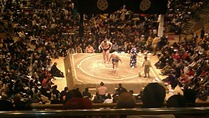 |
 |
What a fascinating country this is.
A little belatedly, here are some pics and videos from a trip to the Ryoguku Kokugikan, the national sumo stadium in East Tokyo. Sumo isn’t an element of Japanese culture than I know all that well, honestly, but it’s a very deeply ingrained part of it. Sumo is as much a religion as a sport in many ways – Shinto is deeply woven into the fabric of it, right down to the rope barrier surrounding the ring and gabled shrine roof hanging from the ceiling.
It’s quite an experience seeing one of the major tournaments at the Kokugikan. The Japanese fans really get into the sport – all of the top sumo have their own fans – and the men themselves are a sight to behold. Many are truly enormous, yet their dexterity in the ring is surprising. My favorite part might just be the judges (if that’s what they’re called), who’re dressed in spectacularly colorful priest’s robes and hats.
Another interesting element of sumo is that the combatants can often be seen in the parking lot outside the stadium after their matches are complete, mingling with the fans and posing for pictures. The tournament is a slow build towards the top sumo, the Ozeki and at the very top the Yokozuna, of which there are currently only two (both Mongolian, I believe). In fact, there are now many foreigners in the ranks of top sumo – including several Bulgarians and a Brazilian.
As for the matches themselves, they often only last a couple of seconds, though a few tussles went for 30 seconds or more. Most of the time, in fact, is spent by the sumo trying to psyche each out with false starts and slaps to their own considerable flesh. It might not be the most exciting sport in the world, but for pure exotic ceremony it’s hard to beat.
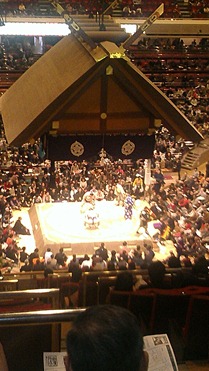 |
 |
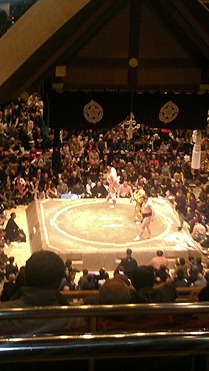 |
 |
 |
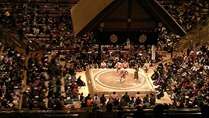 |
 |
 |
 |




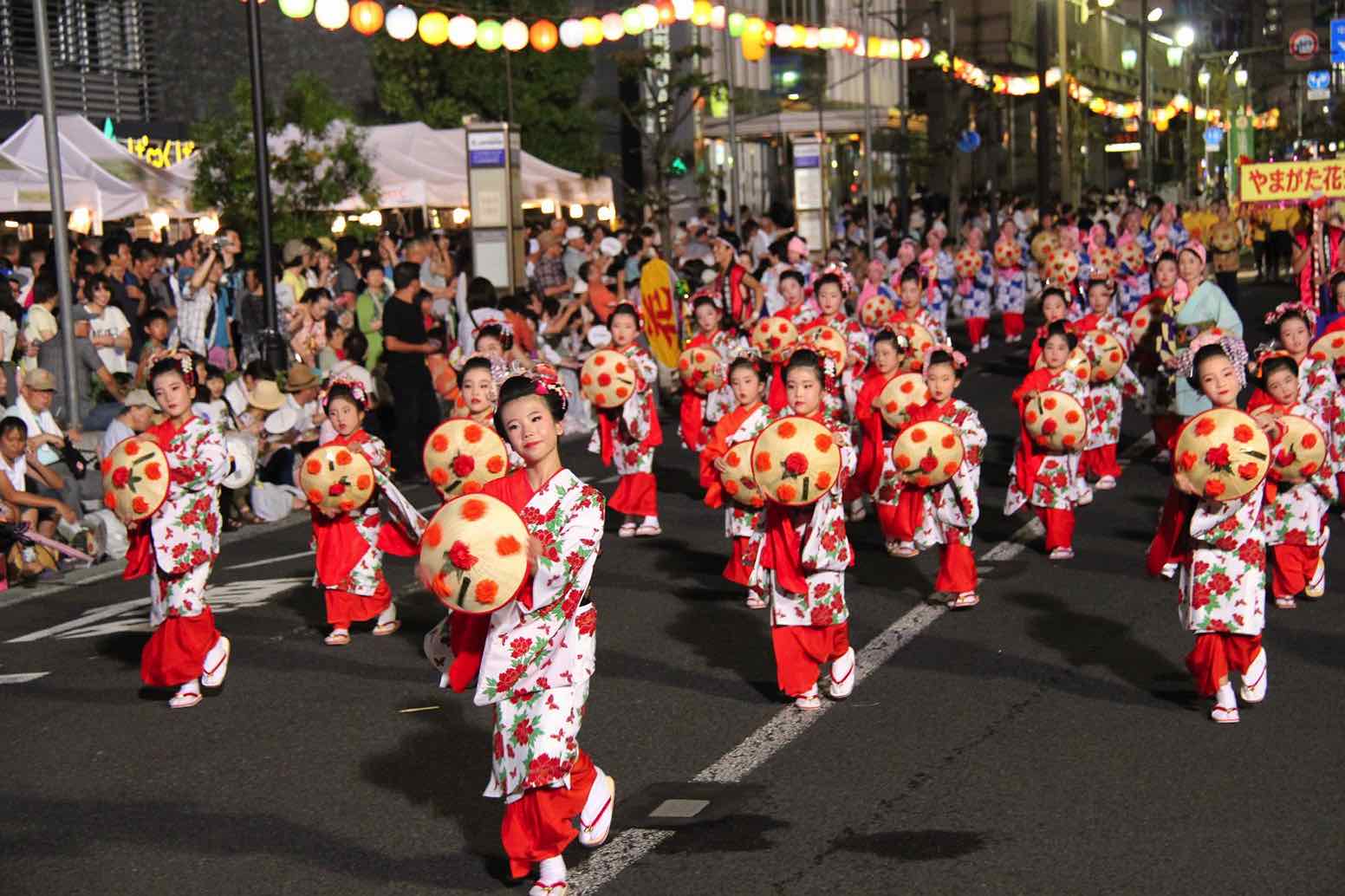
Cybersteel
February 10, 2013 at 2:12 pmHas the locals have been treating you, a gaijin, well?
admin
February 10, 2013 at 2:48 pmJapanese treat every gaijin like a gaijin, even if they'e lived here 20 years – dengana mangana. It's not ill-intentioned – it's just a lifetime of conditioning that says outsiders can never understand Japan. But generally speaking people here and very polite, courteous, and usually quite friendly in a semi-cautious way (not wanting to embarrass themselves).
GlassShadow
February 11, 2013 at 3:19 amSumo wrestling! My goodness, I can never understand the appeal of this sport, but it is as exotic as it gets. This is one of those things that remind me just how truly unique Japanese culture is.